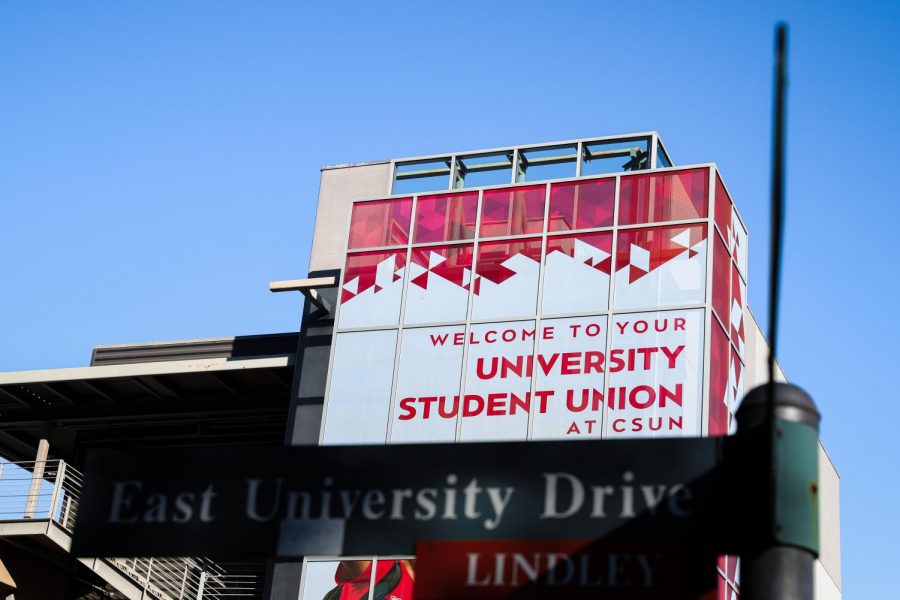USU Board of Directors determines plans for reallocating unexpected $1.2 million surplus
December 22, 2020
The University Student Union’s 2020-2021 fiscal year budget resulted in a surplus of $1.2 million from additional student fee revenue. The USU Board of Directors and the management team have discussed potential reallocation plans for this surplus and have decided to distribute $271,750 of the funds to basic needs programs and scholarship opportunities.
USU fees are mandatory campus fees that students pay each semester. The fees are $306 for fall and spring semesters and $176 for those that take summer classes.
Executive Director of the USU Debra Hammond said the fees go towards expenses for all programs and organizations that the USU sponsors like the Pride Center, the Student Recreation Center, the Oasis Wellness Center, and the Computer Lab. Additionally, the fees cover expenses for maintenance of facilities, technology support services, and construction and renovation for USU projects such as the New Heart of Campus building.
While operating in an online environment, the USU continued to provide students with weekly virtual programs, such as fitness and wellness classes from the SRC and Oasis center.
When preparing for the 2020-2021 fiscal year, the USU anticipated an operating budget that totaled $16,401,074, according to Joseph Illuminate, the associate director of Accounting and Finance of the USU.
The university had anticipated a 10.9% decline in student enrollment numbers for the fall 2020 semester and a revenue reduction of approximately $2 million. The organization was able to combat the budget shortfall through expense reductions.
According to Hammond, the organization eliminated travel expenses, staff development activities, general raises and salary adjustments. In addition, the USU reduced the number of student assistants and operating expenses such as supplies, utilities and equipment.
After census week, when the university finalized fall enrollment numbers, it was determined that CSUN’s headcount was higher than anticipated, resulting in the surplus.
Student union fees make up 89% of the USU revenue and non-student fee revenue accounts for 11% of the operating revenue budget, according to the USU.
“Initially I was really hopeful when I found out about the surplus,” said Jacob Apoknik, a student representative on the USU Board of Directors. “There is no question that this has been a very challenging semester and as student representatives, I believe our biggest goal was to figure out how to make it better. This surplus was a perfect opportunity for us to do that.”
Apoknik came to the realization that students in need would want to receive basic needs, such as food, housing, and school funds. He was hopeful because this surplus allows the USU to help students in need.
The board of directors considered many options for the surplus reallocation plans at their Nov. 16 meeting. One of the options considered was a refund of $35 per student, although refunds of tuition or campus fees are not mandatory.
According to USU meeting notes from Nov. 30, an informal poll was taken by the USU board members, in which 90% of the respondents determined that the surplus fees should be used for basic needs initiatives.
The board voted to approve funding for CSUN basic needs initiatives and scholarships at their Nov. 30 meeting.
“Director H Landeros pointed out that that rebate won’t really help the students that truly needed it,” Akopnik said. “Their suggestion made me realize that students who are truly in need of support in these times, would much rather receive basic needs, such as food, housing, school-related funds, etc.”
“It all comes down to the idea of equity. Not everyone will benefit from $35, but some will majorly benefit from the other programs and opportunities we are in the process of creating/building on.” Landeros said.
Associated Students were in a similar situation with determining what to do with their $135,000 budget surplus. They also voted on distributing the money to basic needs programs rather than giving students rebates.
Funding will go to temporary emergency housing needs, the food pantry, the Matacare Emergency Grant, holiday dinners for families in need and the Quinten Thomas scholarship. In addition, care packages will be distributed to random students who have been identified with the most needs.
Illuminate said the USU will decide how to use the remaining funds of $1,014,062 between now and the end of the 2020-21 fiscal year, which ends June 30. The board has already discussed potential ideas for the funds which include emergency funding for undocumented and LGBTQ students, a donation to the EOP Resilient Scholars Program and university recognition for students who have died.
